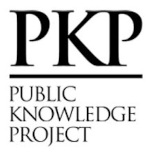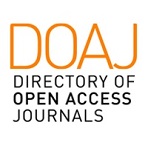Art, Nature and Coloniality
Critiques of the Anthropocene
DOI:
https://doi.org/10.29147/datjournal.v10i2.995Keywords:
Anthropocene, Coloniality, Contemporary Art, Nature, TechnologyAbstract
This article proposes a critical reflection on the interrelationships between art, nature, and coloniality, with special attention to the contributions and critiques of the concept of the Anthropocene from Latin American perspectives. To develop this reflection, the article is organized into two parts. The first presents critiques of the Anthropocene based on the contributions of thinkers such as Aníbal Quijano, Ailton Krenak, Antonio Bispo, Deborah Danowski, and Marisol de la Cadena. Their formulations highlight the urgency of overcoming Western paradigms that treat nature as an external resource to culture, denouncing the colonial and extractivist character that underpins such discourses. The second part focuses on contemporary artistic practices that address these issues and are directly linked to debates on ecology, decoloniality, and feminisms. It analyzes the works and projects of artists such as Lucas Bambozzi, Paulo Tavares, Giselle Beiguelman, and Constanza Piña, whose poetics propose critical engagements with the environment and with the marks left by historical processes of violence, domination, and cultural erasure inherited from colonialism. These works not only denounce the effects of historical colonialism but also create spaces for aesthetic and political experimentation, in dialogue with other ways of imagining and being in the world.
Downloads
References
ARANTES, Priscila Almeida Cunha. Memoria, colonialismo, arte y tecnología: explorando diálogos posibles. ANIAV - Revista de Investigación en Artes Visuales, n. 14, p. 1–9, 2024. Disponível em: https://doi.org/10.4995/aniav.2024.20636. Acesso em: 13 abr. 2025. DOI: https://doi.org/10.4995/aniav.2024.20636
ARANTES, Priscila Almeida Cunha; PRADO, Gilberto. Entre os fluxos da natureza: diálogos entre o design, a arte e o meio ambiente. La Tadeo Dearte, Bogotá: Universidad de Bogotá Jorge Tadeo Lozano, 2022.
BISPO, Antônio. Colonização, Quilombos: modos e significações. [S.l.: s.n.], 2015.
BRITTO, Marcos. Resenha de Autonomia Y Diseno. Acesso em: http://www.redobra.ufba.br/wp-content/uploads/2020/15/18-REDOBRA_15-Resenha_Marcos_Britto.pdf. 2020.
CADENA, Marisol de la. Natureza incomum: histórias do antropo-cego. Revista do Instituto de Estudos Brasileiros, n. 69, p. 95–117, 2018. Disponível em: https://doi.org/10.11606/issn.2316-901X.v0i69p95-117. Acesso em: 13 abr. 2025. DOI: https://doi.org/10.11606/issn.2316-901X.v0i69p95-117
CRUTZEN, Paul J.; STOERMER, Eugene F. The “Anthropocene”. Global Change Newsletter, n. 41, p. 17–18, 2000. Disponível em: https://www.igbp.net/download/18.316f18321323470177580001401/1376383088452/NL41.pdf. Acesso em: 13 abr. 2025.
DANOWSKI, Déborah; VIVEIROS DE CASTRO, Eduardo. Há mundo por vir? Ensaio sobre os medos e os fins. Florianópolis: Cultura e Barbárie, 2014.
ESCOBAR, Arturo. Designs for the Pluriverse: Radical Interdependence, Autonomy, and the Making of Worlds. Durham: Duke University Press, 2018. DOI: https://doi.org/10.1215/9780822371816
HARAWAY, Donna. Antropoceno, capitaloceno, plantationoceno, chthuluceno: fazendo parentes. ClimaCom, Campinas, v. 3, n. 5, p. 139–146, 2016. Disponível em: https://www.academia.edu/25130394/ANO03_N05_Antropoceno_Capitaloceno_Plantationoceno_Chthuluceno_fazendo_parentes_Donna_Haraway. Acesso em: 13 abr. 2025.
HARAWAY, Donna. Staying with the Trouble: Making Kin in the Chthulucene. Durham: Duke University Press, 2016. DOI: https://doi.org/10.2307/j.ctv11cw25q
KRENAK, Ailton. A vida não é útil. São Paulo: Companhia das Letras, 2020.
KRENAK, Ailton. Ideias para adiar o fim do mundo. São Paulo: Companhia das Letras, 2019.
LUGONES, María. Heterosexualism and the Colonial/Modern Gender System. Hypatia, v. 22, n. 1, p. 186-209, 2007. Disponível em: https://muse.jhu.edu/article/206329. DOI: https://doi.org/10.1353/hyp.2006.0067
LUGONES, María. Colonialidade e gênero. In: HOLLANDA, Heloisa Buarque de (org.). Pensamento feminista hoje: perspectivas decoloniais. São Paulo: Editora Bazar do tempo, 2020.
MALM, Andreas. The Anthropocene Myth. Jacobin Magazine, 2015. Disponível em: https://jacobin.com/2015/03/anthropocene-capitalism-climate-change. Acesso em: 13 abr. 2025.
MIGNOLO, Walter. Colonialidade: o lado mais escuro da modernidade. 2. ed. Buenos Aires: CLACSO, 2017. DOI: https://doi.org/10.17666/329402/2017
MOORE, Jason W. Capitalism in the Web of Life: Ecology and the Accumulation of Capital. London: Verso, 2015.
PAIVA, Alessandra Simões. A virada decolonial na arte brasileira. 1. ed. São Paulo: Mireveja, 2022.
PRATT, Anne. Poisonous, Noxious, and Suspected Plants of Our Fields and Woods. London: Society for Promoting Christian Knowledge (SPCK), 1857.
QUIJANO, Aníbal. Colonialidade do poder, eurocentrismo e América Latina. Revista Venezolana de Economía y Ciencias Sociales, v. 6, n. 1, p. 117–149, 2000.
TAVARES, Paulo. Memória da terra: arqueologias da ancestralidade e da despossessão do povo Xavante de Marãiwatsédé. [S.l.], 2020. Disponível em: https://memoriadaterra.org/. Acesso em: 13 abr. 2025.
TSING, Anna Lowenhaupt. The Mushroom at the End of the World: On the Possibility of Life in Capitalist Ruins. Princeton: Princeton University Press, 2015. DOI: https://doi.org/10.1515/9781400873548
Downloads
Published
How to Cite
Issue
Section
License
Copyright (c) 2025 DAT Journal

This work is licensed under a Creative Commons Attribution 4.0 International License.


























